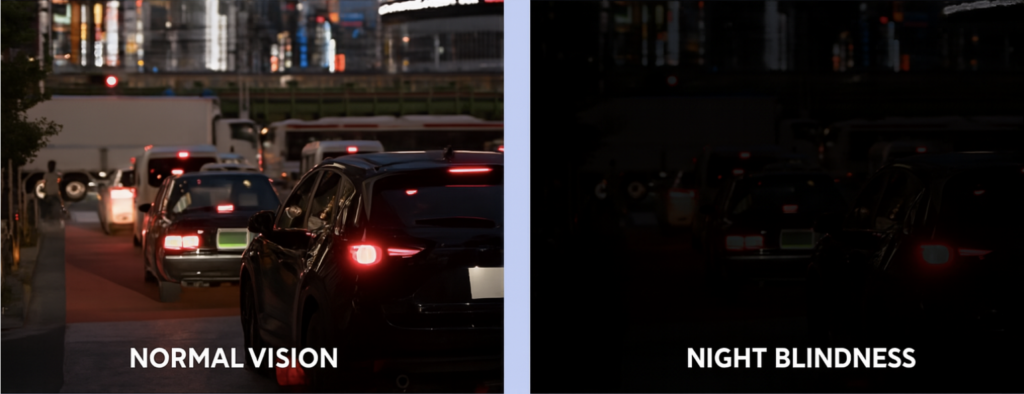Vitamin A is well-known for its role in eye health—but did you know it’s also critical for night vision? If you struggle to see in dim light or frequently wake up with dry, tired eyes, a lack of vitamin A might be part of the problem. In this post, we’ll explore how vitamin A affects your ability to see in the dark, signs of deficiency, and whether taking supplements can improve your night vision.
👁️ Why Vitamin A Matters for Night Vision

Vitamin A helps produce rhodopsin, a pigment in your retina’s rod cells that allows your eyes to detect light in low-lit environments. Without enough of it, your eyes can’t properly adjust to darkness—leading to night blindness.
🧪 Signs of Vitamin A Deficiency
Low levels of vitamin A can show up in subtle or severe ways:
- Difficulty seeing in dim lighting
- Dry, irritated eyes
- Poor wound healing
- Skin dryness or rough patches
- Frequent infections
🔍 Note: Severe deficiency can lead to full night blindness or even corneal damage if left untreated.
🥕 Best Food Sources of Vitamin A

While supplements can help, it’s best to start with nutrient-rich foods:
Animal-Based (preformed vitamin A):
- Beef liver
- Egg yolks
- Cod liver oil
Plant-Based (beta-carotene, converted to A in the body):
- Carrots
- Sweet potatoes
- Butternut squash
- Kale and spinach
💊 Can Vitamin A Supplements Improve Night Vision?
In many cases, yes—especially if you’re deficient.
Benefits of Supplementing:
- Restores normal rhodopsin production
- Improves eye lubrication
- May prevent or reverse mild night blindness
🛑 Caution: Too much vitamin A (especially the preformed kind) can be toxic. Stick to the recommended daily intake unless prescribed.
✔ Recommended Dosage:
- Adults: 700 mcg (women), 900 mcg (men) per day (RDA)
- Use beta-carotene supplements for a safer, plant-based option
🌿 Pairing Vitamin A With Other Nutrients
For best results, pair vitamin A with these co-nutrients:
- Zinc – Helps transport vitamin A to the retina
- Vitamin E – Protects vitamin A from oxidation
- Healthy fats – Aids absorption of fat-soluble vitamins
If you’re experiencing trouble seeing at night, don’t ignore it—your body might be trying to tell you something. Vitamin A is vital for eye function, especially in low-light settings. Start with a nutrient-rich diet and talk to your doctor about whether supplements are appropriate. With the right approach, you can support your night vision naturally.
What Is Night Blindness? Symptoms, Causes, and Natural Remedies
